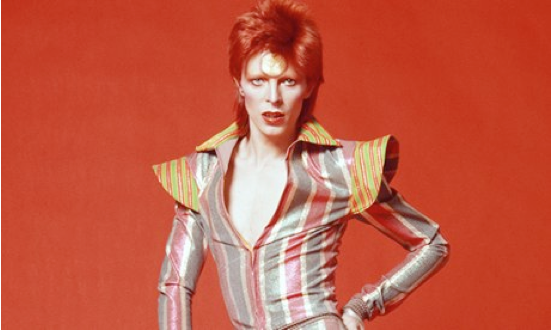CommentsHERE’S WHAT I KNOW-When rock icon David Bowie died Sunday night following an 18-month battle with cancer, celebs blew up the Twittersphere and just about everyone of a certain age, myself included, posted YouTube links to Space Oddity or Modern Love with such magnitude of tribute that I don’t remember seeing since the death of George Harrison or maybe Michael Jackson.
Bowie was no doubt a trailblazer in his music and his style. When a friend asked why so many seemed grief-stricken by his passing, I shared I suspected the loss of those who gave us the soundtrack of our youth reminds us of our own mortality.
As with most celeb obits, the accolades were quickly followed by the seamy B-side of fame. Back in the seventies when Bowie was pushing convention with his glittery rock, Sunset Strip’s Rainbow Bar & Grill, the Whiskey, and Rodney Bingenheimer’s English Disco were the playground of not only luminaries like Bowie and Jimmy Page but also adolescent 12-16 year olds who had garnered some fame of their own as Baby Groupies.
The seventies perhaps epitomized Sex, Drugs, Rock ‘n Roll with endless supplies of coke, Quaaludes, and sex partners. This was before HIV and TMZ. Handlers, club managers, and the staff at the Continental Hyatt looked the other way when rock stars and their entourage threw TVs out the window or held orgies with preteens. And the well-established narrative included Bowie, along with a host of other rock stars.
In a November Thrillist interview, Lori Mattix spilled details in I Lost My Virginity to David Bowie: Confessions of a Seventies Groupie. At 15, Mattix was just one of the Baby Groupies who frequented clubs on the Strip while the closest their peers got to a rock star was in a poster on their bedroom walls. Although the age of consent in California has been 18 since 1970, Mattix says she didn’t consider herself as underage.
“I was a model. I was in love. That time my life was so much fun. It was a period in which everything seemed possible. There was no AIDS and the potential consequences seemed to be light. Nobody was afraid of winding up on YouTube or TMZ. Now people are terrified. You can’t even walk out the door without being photographed. It has become a different world.”
Should we look at the past through the filter of heavily drugged rockers who likely saw these adolescents as a perk of fame? Bowie was open about his drug use, telling Cameron Crowe in a 1975 interview, “I’ve had short flirtations with smack and things but it was only for the mystery and the enigma. I like fast drugs. I hate anything that slows me down.”
Of course, drug use doesn’t lead to sex with minors but excesses of any sort were essential to the seventies brand of hedonism. More than a few comment threads about Bowie’s engagement with the Baby Groupies are peppered with “Those were different times.” Still, handlers knew enough to try to keep this behind closed doors.
Others brush off concerns about the age of consent by addressing the groupies’ willingness. After all, what teen wouldn’t swoon from the attention of a musician, whether Sinatra, one of the Beatles, or One Direction.
Legally, enthusiasm or flirtation in a mini-dress doesn’t absolve one from the boundaries of consent. Nor does a haze induced by a binge of coke, ‘ludes,’ or fifths of vodka.
Can we isolate the behaviors from talent? We likely consider that question every time we watch a Woody Allen or Roman Polanski film or listen to just about any track from the seventies.
Rebecca Hains, associate professor of media studies at Salem State University, wrote following Bowie’s death, “Calling out artists’ (alleged) abuse of others doesn’t necessarily negate the cultural value of their bodies of work.”
Perhaps we can continue to appreciate an artist’s oeuvre while remembering the abuses as a cautionary tale.
(Beth Cone Kramer is a Los Angeles-based writer and CityWatch contributor.) Prepped for CityWatch by Linda Abrams.
-cw
CityWatch
Vol 14 Issue 5
Pub: Jan 15, 2016
Sidebar
Our mission is to promote and facilitate civic engagement and neighborhood empowerment, and to hold area government and its politicians accountable.

 CityWatch Los Angeles
Politics. Perspective. Participation.
CityWatch Los Angeles
Politics. Perspective. Participation.
27
Fri, Feb














